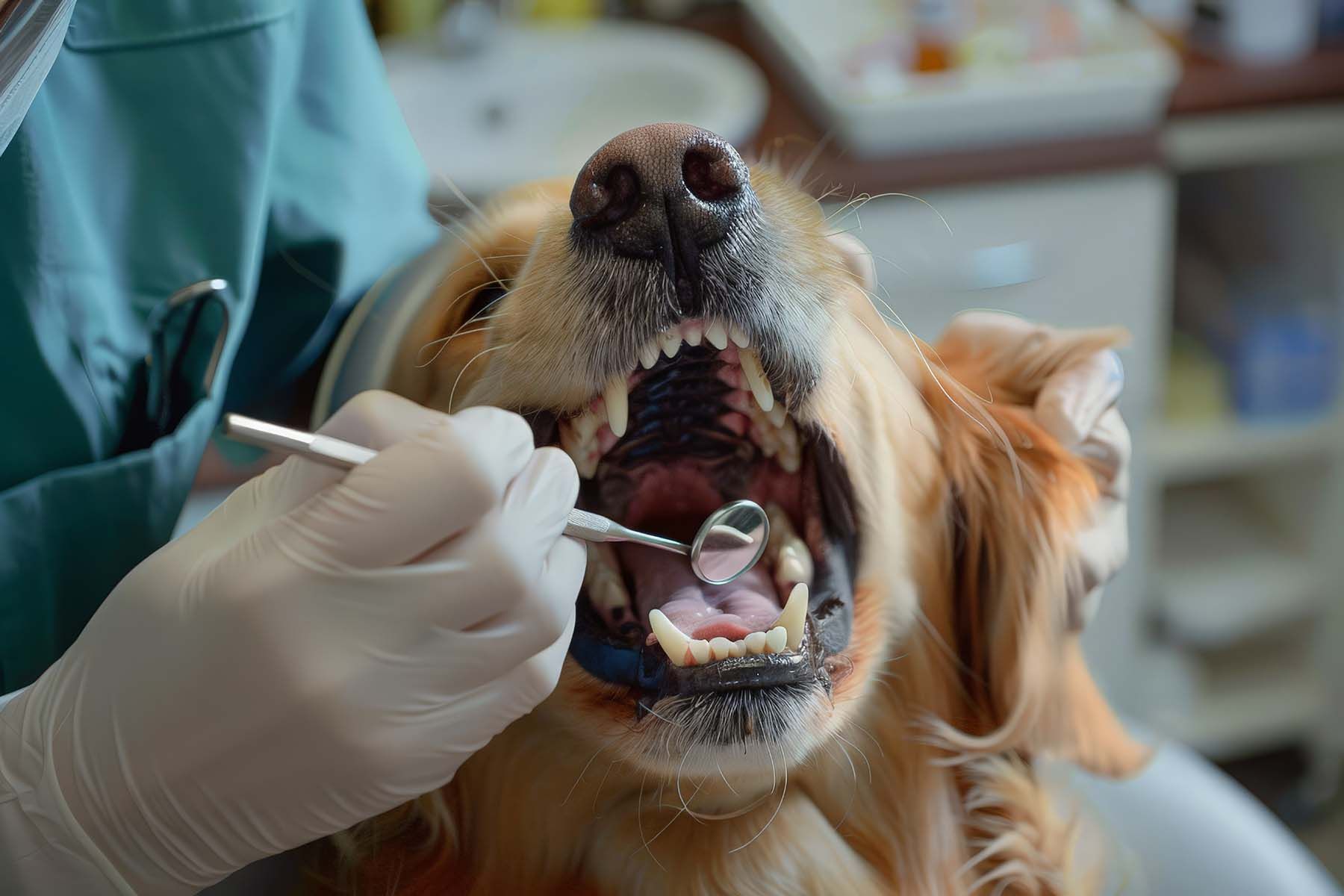Oral Biolife Announces Potential Breakthrough Periodontal Disease Gel
The Biotech company has large animal proof-of-concept results for its lead product, Ambrilux Dental Gel, in the setting of periodontal disease characterized by bone loss in the tooth furcation
Oral Biolife Announces Potential Breakthrough Periodontal Disease Gel | Image Credit: © Molokot - stock.adobe.com/Generated with AI

Research from a Pennsylvania biotechnology company provides promise that its first-of-its-kind dental treatment for humans and companion animals may successfully promote the regeneration of bone in the furcations of teeth, a development that could prove to be a significant breakthrough in combating periodontal disease.
Oral Biolife (OBL) announced on October 8 critical new developments of large animal data backing their lead product, Ambrilux Dental Gel. Ambrilux Dental Gel has been shown to promote the regeneration of bone in the furcations of teeth in 3 Beagle dogs with induced periodontal disease, according to the company.
Radiographs were taken at baseline 28 days after the first application and 29 days after the second application. The radiographs demonstrated that 100% (n=3) of animals treated with Ambrilux showed increased bone regeneration at both the first and second month post-treatment while only 33% (n=3) of control animals had detectable bone growth. The ability of Ambrilux to promote bone growth in the setting of periodontal disease in large animals provides key translatable data supporting the potential use in human disease.
According to the Centers for Disease Control and Prevention, about 4 in 10 US adults 30 years or older had a mild, moderate, or severe level of periodontitis in 2009–2014, and about 1 in 2 men and 1 in 3 women 30 years or older had some level of periodontitis.1
There were no adverse events or other safety issues noted throughout the study, according to Oral Biolife. An adverse event is defined as any unexpected observation seen in dogs that is unfavorable and unintended and occurs after the use of an investigational veterinary product, regardless of the possible relationship to the product.
“This proof-of-concept marks a major milestone in our journey. It reinforces our confidence that Ambrilux Dental Gel has the potential to revolutionize how dental care is provided, offering a less invasive and more accessible option for patients," Bill Breitenbach, CEO of Oral Biolife, says in a press release.
In July 2024, Oral Biolife had announced that they’d formed a strategic partnership with a “top-tier global leader in animal health,” to develop a product intended to revolutionize the way PD is treated in companion animals.2
With periodontitis affecting nearly 20% of the global population and 47% of US adults, as well as costing an estimated yearly 54 billion USD in loss of productivity3, there is clearly an unmet need for an effective non-invasive solution to treat periodontal disease. OBL’s findings are a step towards a potential breakthrough in dental and oral health research.
“At OBL our mission has always been to find a way to provide Americans with access to non-invasive dental care,” adds Stella Vnook, president of Oral Biolife. “We are pleased with these promising results and are excited to continue our research to further establish the safety and efficacy of the Ambrilux Dental Gel.”
Oral Biolife is an innovative biotechnology company headquartered in Bethlehem, PA that utilizes the unique properties of biotechnology materials to develop groundbreaking, first-to-market products. Ambrilux Dental Gel, via its unique ability to regenerate bone lost due to periodontal disease, represents a potential breakthrough for treating periodontal disease, the company states.
For more information, visit https://www.oralbiolife.com.
References
1. Eke PI, Thornton-Evans GO, Wei L, Borgnakke WS, Dye BA, Genco RJ. Periodontitis in U.S. adults: National Health and Nutrition Examination Survey 2009–2014. J Am Dent Assoc. 2018;149(7):576–588. https://doi.org/10.1016/j.adaj.2018.04.023
2. Oral Biolife Inc. Announces Animal Health Partnership to Support Animal Oral Health. News release. Oral Biolife. July 31, 2024. Accessed October 14, 2024. https://world.einnews.com/pr_news/731942189/oral-biolife-inc-announces-animal-health-partnership-to-support-animal-oral-health
3. Thornton-Evans G, Eke P, Wei L, Palmer A, Moeti R, Hutchins S, Borrell LN; Centers for Disease Control and Prevention (CDC). Periodontitis among adults aged ≥30 years - United States, 2009-2010. MMWR Suppl. 2013 Nov 22;62(3):129-35.
Floss & Flip-Flops Episode 11: Diabetes Health Month
November 15th 2022Diabetes is a global disparity and most notably impacts those who are diagnosed as well as those with pre-diabetes or undiagnosed diabetes. Let’s discuss how to become better patient advocates in the screening, management and maintenance of diabetic cases.
Should Chlorhexidine Remain the “Gold Standard” In Today’s Modern Hygiene?
May 29th 2024As the world of dentistry continuously evolves and new science emerges, it is imperative for dental professionals to evaluate both past and current research in order to make informed decisions and provide patients with the most accurate information and ethical care.